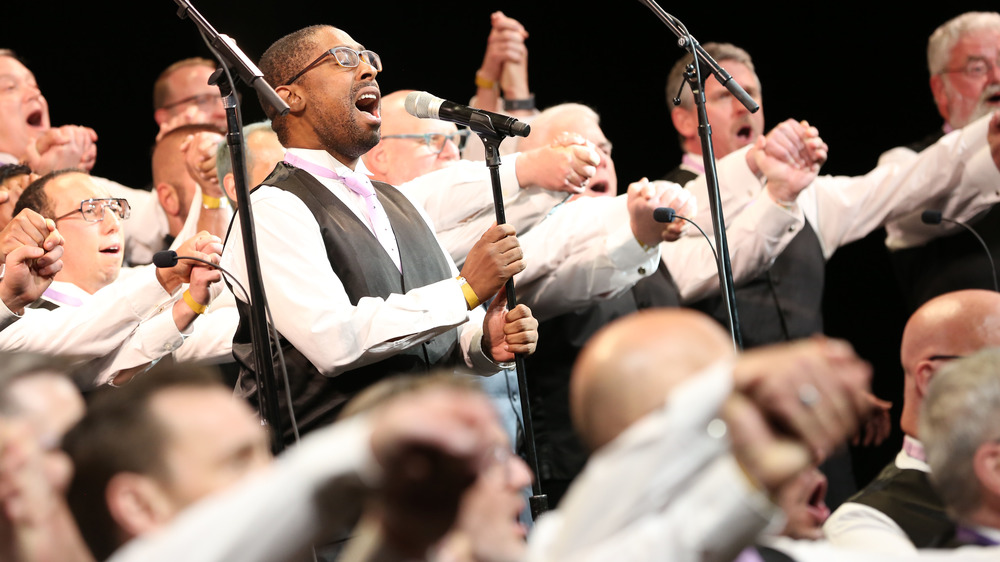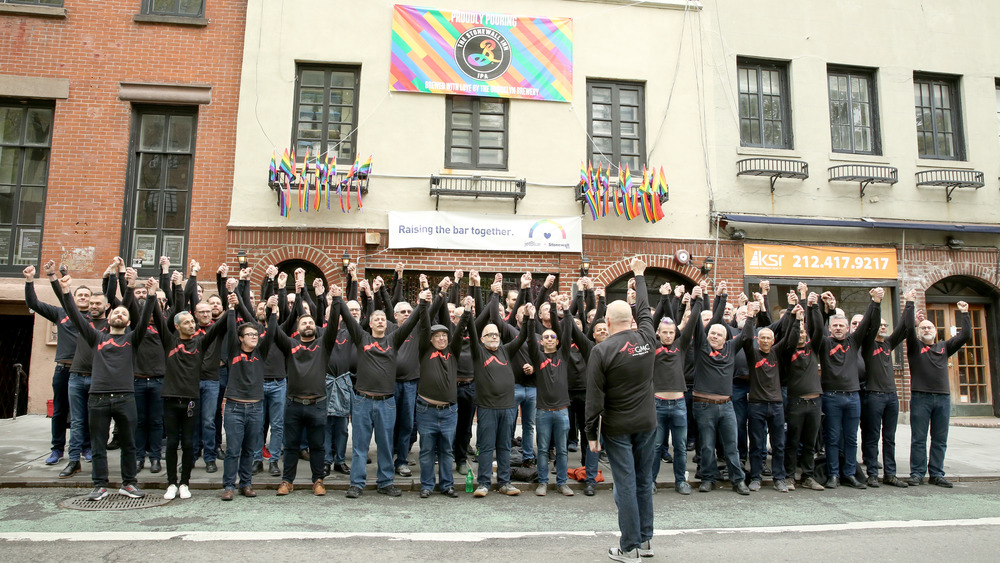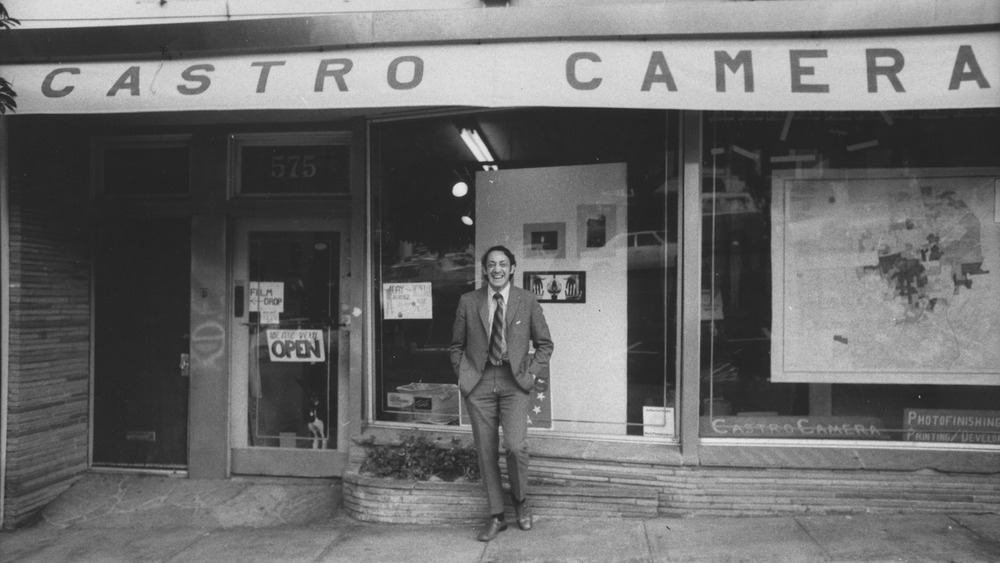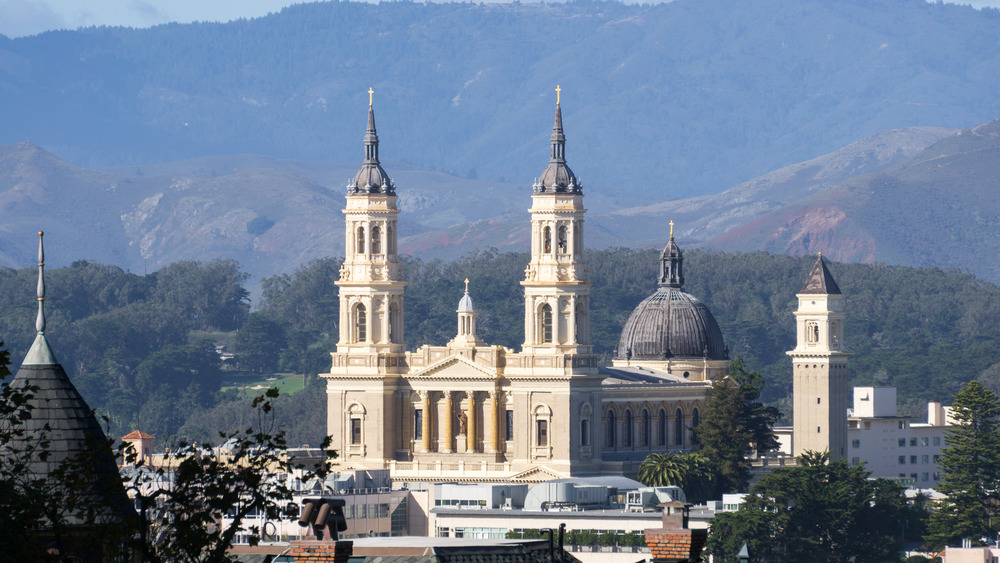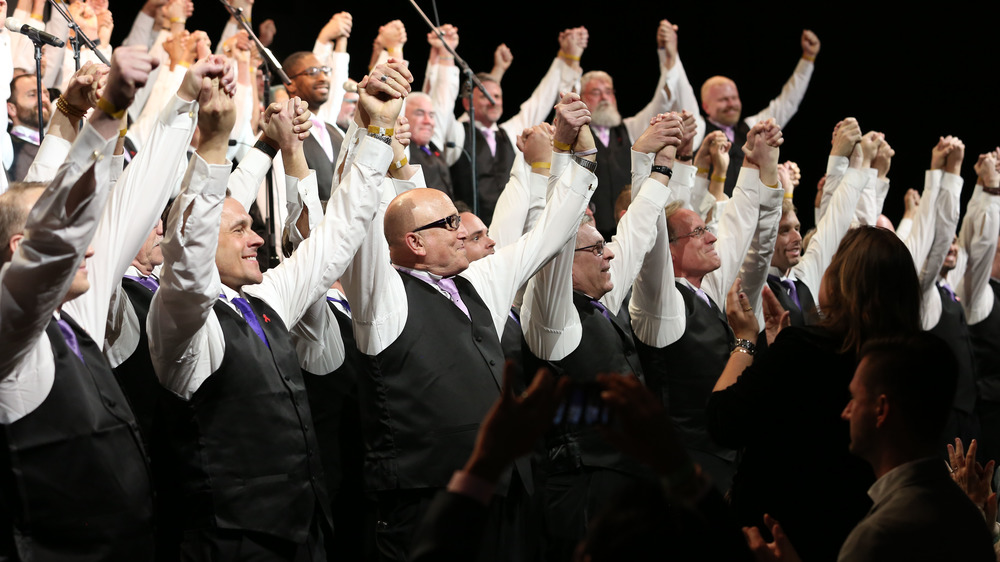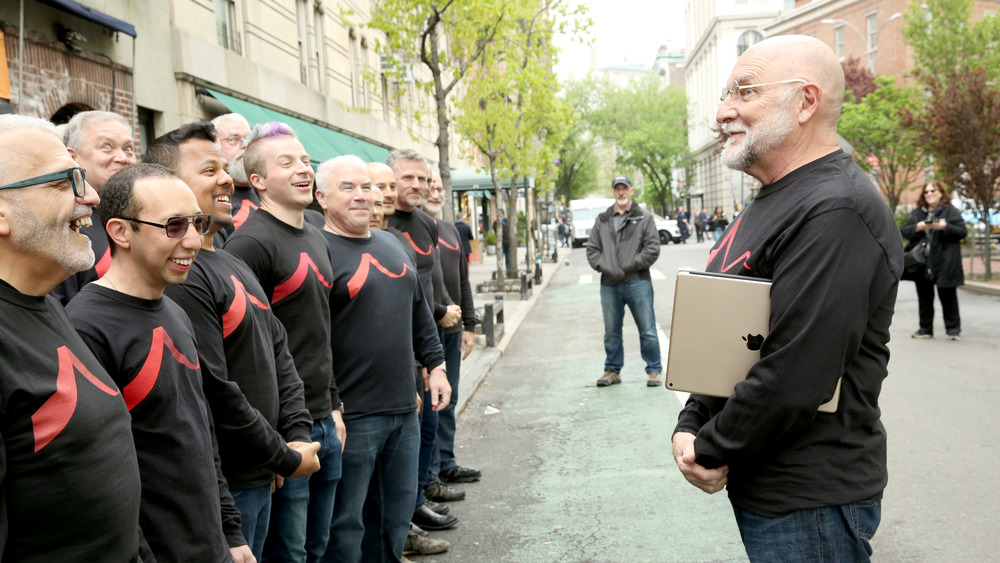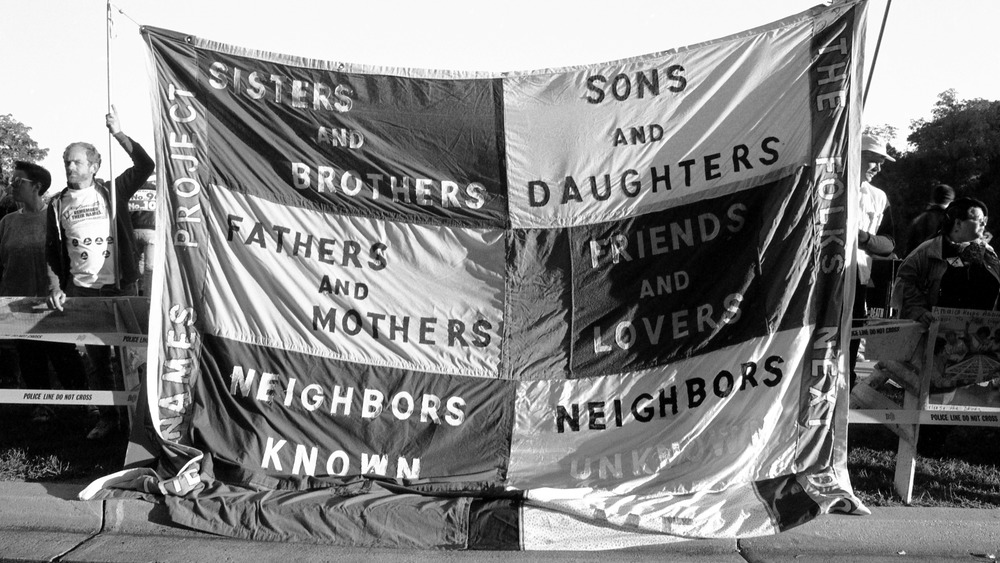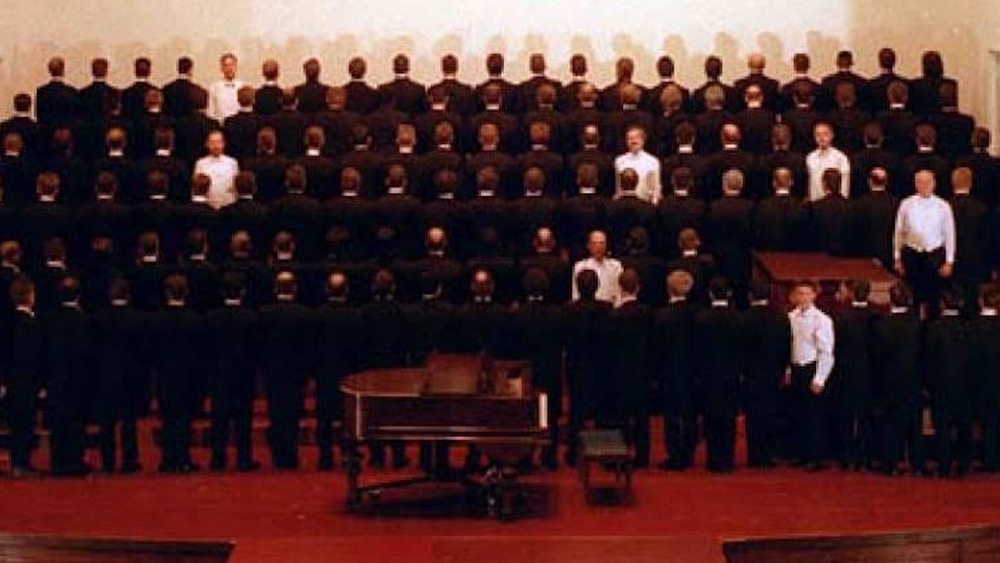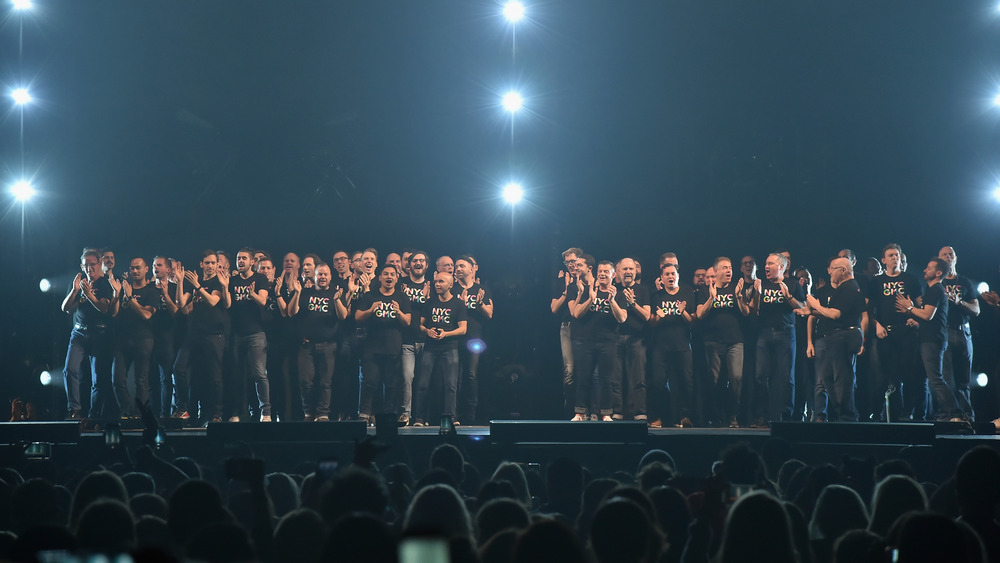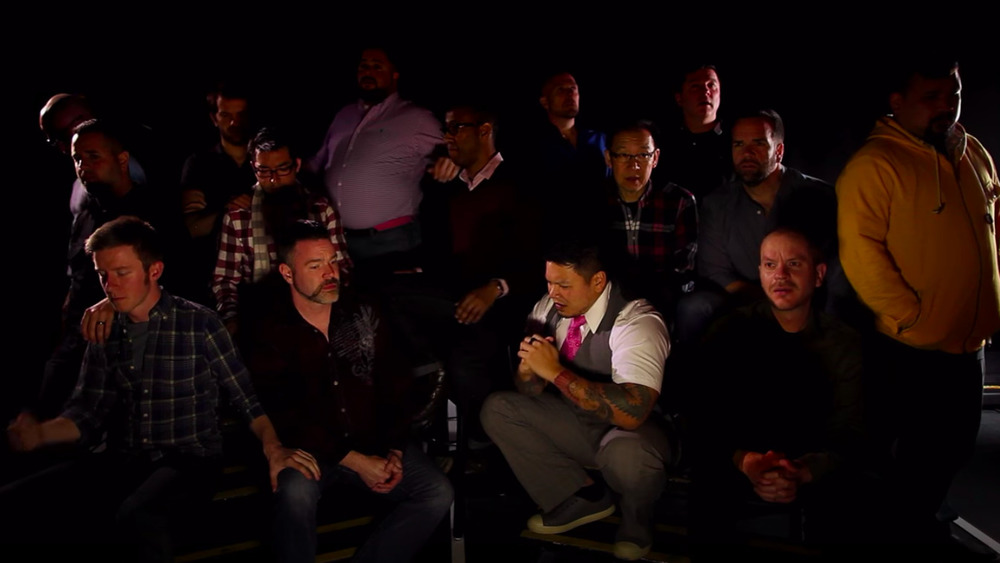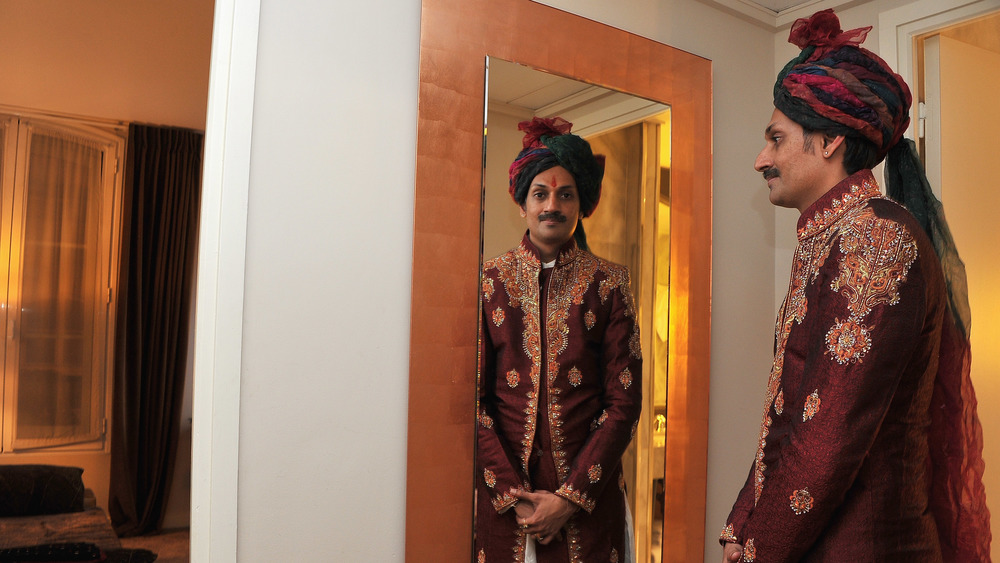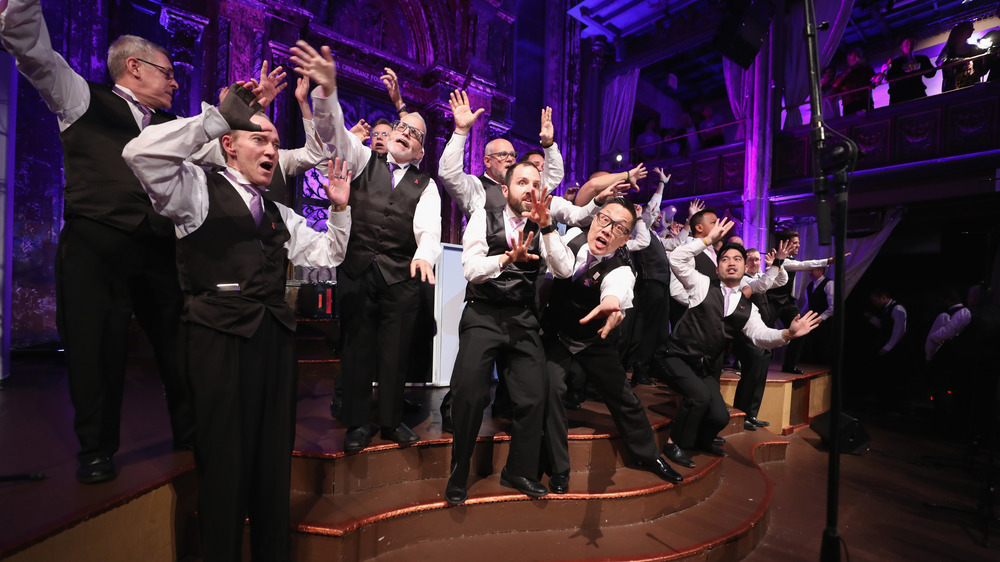The Untold Story Of The San Francisco Gay Men's Chorus
The San Francisco Gay Men's Chorus was one of the first of its kind, and was the first to include "gay" unapologetically in their name. Fighting against discrimination and bigotry while losing countless loved ones to the AIDS epidemic, the San Francisco Gay Men's Chorus not only persevered themselves, but they inspired an LGBTQ+ choral movement worldwide.
Since the first 115 members sang on the steps of City Hall in 1978, over 2,000 different men, cis and trans, and non-binary people have sung with the chorus. Jon Reed Sims, who founded the San Francisco Gay Men's Chorus, went on and founded a number of gay and lesbian choral and instrumental ensembles before his tragic untimely death from AIDS. In addition to releasing a number of recordings, the San Francisco Gay Men's Chorus has been featured in several documentaries, including Singing Positive, which received an award from GLAAD in 1996, and Gay Chorus Deep South, which chronicled their "life-changing Lavender Pen Tour through five southern states in the fall of 2017."
After over 40 years of performances and still going stronger than ever, the San Francisco Gay Men's Chorus is itself a testament to the notion that "it gets better." This is the untold story of the San Francisco Gay Men's Chorus.
The creation of the San Francisco Gay Men's Chorus
In the fall of 1978, Jon Reed Sims founded the San Francisco Gay Men's Chorus. After studying music composition, Sims moved to San Francisco intending to become a music teacher. But according to FoundSF, after briefly teaching high school band, he soon "devoted himself full-time to developing gay and lesbian musical groups throughout the Bay Area." The same year he started the SFGMC, he also founded the San Francisco Lesbian/Gay Freedom Band, originally known as the San Francisco Gay Freedom Day Marching Band and Twirling Corps, the first openly gay and lesbian marching band.
Sim's motivation was initially just to include more music in the local Gay Freedom Day parade. And the SF Lesbian/Gay Freedom Band didn't disappoint when they marched along with Harvey Milk in the 1978 summertime parade. According to SFGMC, Sims put out flyers in and around the Castro inviting men to join him in creating a chorus. Their first rehearsal was set for October 30th at Everett Middle School. At least 100 men came to the first rehearsal and "the atmosphere of excitement was described as palpable."
Originally, Sims was the conductor and the group planned on calling themselves "Men About Town." Homosexual Choir and Foggy City Chorus were also up for consideration, but including the word "gay" was contentious since it was still considered "denigrating." But after Dick Kramer came on as conductor, the group finally settled on the San Francisco Gay Men's Chorus.
An impromptu show after tragedy
Anne Kronenberg, Co-Founder of the Harvey Milk Foundation, said, "Harvey was very excited when Jon Sims founded the chorus in 1978, but he did not live long enough to hear the group perform." Less than one month after the San Francisco Gay Men's Chorus' first rehearsal, San Francisco Mayor George Moscone and Supervisor Harvey Milk were assassinated by Daniel White on November 27th, 1978.
One year earlier, Milk had become the first openly gay elected official in California, and according to NPR, his advocacy for gay rights "angered many." The Guardian also notes that Moscone ran on a platform "to curtail police brutality and to support civil rights for gay San Franciscans and San Franciscans of color."
The evening of the assassination, the members of the chorus showed up at their fourth rehearsal "grief-stricken and in shock." With the sheet music to Mendelssohn's "Thou, Lord our Refuge," the group went to the candlelight vigil that was being held at City Hall. Joining the "thousands of candle-carrying San Franciscans," on the steps of City Hall that night, the San Francisco Gay Men's Chorus performed publicly for the first time.
The San Francisco Gay Men's Chorus fights bigotry in court
Right before their national tour in 1981, the San Francisco Gay Men's Chorus was invited to perform at St. Ignatius Church at the University of San Francisco. The performance was planned, but then John Quinn, the Archbishop of San Francisco cancelled the concert just a few weeks before it was scheduled to occur. The Bay City Beacon writes that apparently, there were concerns that "allowing the chorus to sing at St. Ignatius would send the message that the Catholic Church approved of homosexuality."
Tim Seelig, the artistic director of the San Francisco Gay Men's Chorus, said, "We were told in no uncertain terms that any chorus that has the word 'gay' in its name is not allowed to sing in any Catholic churches in the city." In Rainbow Warrior, Gilbert Baker writes how after the archdiocese cancelled the performance, the Sisters of Perpetual Indulgence led hundreds to protest in front of the church on campus. In return, "the archdiocese denounced the Sisters as morally depraved troublemakers who gave the community a bad name."
Although the chorus took the university's Jesuits to court, San Francisco Superior Court Justice Ira Brown ruled that it was within the Jesuits' rights to refuse the chorus. A few months later, the SFGMC was awarded damages from a civil suit. Despite this fraught parting, in 2018, the SFGMC was invited back to St. Ignatius to finally give the performance they'd been invited to give 37 years before.
A community for men
Despite the name, membership in the chorus wasn't limited to those who were gay or bisexual. The only requirement is for those in the chorus to self-identify as a man, and in recent years this definition has been expanded to include transgender men and non-binary individuals as well.
In "Navigating Transgender Identity in a Gay Men's Chorus," Brent Joseph Fisher writes how initially the chorus "not only served an outlet for political action," but was a place simply for meeting other gay men who enjoyed singing.
And for many, as they started watching their friends and loved ones succumb to the AIDS epidemic, "the surviving members not only utilized the chorus as a safe space, but also as a coping mechanism for grief, where singing at memorial services supported the grief process." One member of the chorus is quoted as saying, "I would have never been able to survive the things I have without my brothers in the chorus."
The San Francisco Gay Men's Chorus embarked on a national tour
In June 1981, the San Francisco Gay Men's Chorus embarked on their first national tour. According to San Francisco Bay Times, they traveled across the United States, performing in Texas, Minnesota, Nebraska, Michigan, New York, Massachusetts, Washington, D.C., Washington state, and in their home city of San Francisco upon their return. A brass ensemble from San Francisco known as The Bay Area Women's Brass Quartet also toured with the chorus.
And right before going off on the tour, the chorus was awarded the key to the city by San Francisco Mayor Dianne Feinstein. This was the very first time a gay group or ensemble was ever honored in such a way. And according to Gary Miller, music director of the New York City's Gay Men's Chorus, the tour changed lives: "When singers invited their parents to a concert, they were moved. It made them more accepting of their sons' lifestyles." And for many gay men, it was the first time that they were coming together in public in a positive manner. "The lives it changed it was very impressive."
Unfortunately, despite their success, the San Francisco Gay Men's Chorus ended up with a debt of more than $200,000 due to the tour. Three of their members had to mortgage their houses in order to pay for the tour.
The death of Jon Sims
Tragically, Sims didn't live long enough to see the impact that the San Francisco Gay Men's Chorus would end up having on the United States. FoundSF writes that in 1982, Sims stated in an interview that he was feeling "burned out [and] suffering exhaustion-related symptoms he compared with hepatitis." Two years later, in January 1984, Sims was diagnosed with AIDS. Six months after his diagnosis, Sims passed away on July 16th, 1984.
At the time, at least 2,000 men across the country and 200 men in San Francisco had died because of HIV/AIDS, but it was still rarely talked about in the open. According to the Lesbian and Gay Band Association, Sims' obituary was one of the very first to list AIDS as the cause of death, and since very little was known about AIDS the obituary "included an explanation of the disease."
In fostering a community of love and acceptance, Sims did more than just create one chorus and one band. According to the San Francisco Bay Times, he also helped found the San Francisco Tap Troupe, the Lambada Pro Musica Orchestra, and the San Francisco Lesbian and Gay Men's Community Chorus, among others.
The Fifth section of the San Francisco Gay Men's Chorus
At a time when the AIDS crisis was at its height in the United States, members of the San Francisco Gay Men's Chorus lost countless friends and loved ones to AIDS, many of whom were also part of the chorus. The "Fifth Section" began as a way to commemorate these members, and over time has come to represent all the members they've lost. The SFGMC continues to maintain their names on their websites, commemorating the over 300 members they've lost.
In 1993, Artistic Director Stan Hill came up with an idea to represent the toll of the AIDS crisis. According to SDLGBTN, Eric Luse of The Chronicle took a portrait of the Chorus, showing seven of their members in a white dress shirt, facing the audience, with the rest of the chorus dressed in black facing away from the audience. The original caption read "The men in white are the surviving members of the original San Francisco Gay Men's choir (sic). The others represent those lost to AIDS."
In 1996, the same picture was rereleased with this amendment to the caption: "The Gay Men's Chorus posed to illustrate the impact of AIDS. Those dressed in black, with their backs turned, represent those who had died. Today, all their backs would be turned because the obituary list is now 47 names longer than the chorus roster. For each man singing these days, more than one chorus member has died of AIDS."
Sparking a musical movement
In addition to the musical organizations Sims founded in San Francisco, he's also credited with encouraging the formation of The Great American Yankee Freedom Band of Los Angeles and the Big Apple Corps LGBT band in New York.
The San Francisco Gay Men's Chorus's national tour in 1981 also helped spark the creation of other LGBT choruses across the United States. Some of the other early gay and lesbian choruses were founded in 1979, but after the SFGMC's national tour in 1981, hundreds of other LGBT people were inspired into founding their own choruses and bands in cities across the country. And GALA Choruses lists dozens of LGBT choruses worldwide as of 2021. According to "Gay Choruses Sing for Healing and Strength Following Orlando Nightclub Shooting" by Tom Barnes, the choral movement not only provided "a haven for LGBT individuals," but was a political act as well. By singing together, the existence of the gay choral movement actively challenged the heteronormative status-quo that preferred for gay people to stay in the closet.
Although people initially joined just for the music, many ended up finding "a sense of community and friendship." And although the San Francisco Gay Men's Chorus was one of the first of its kind, it definitely wasn't the last.
The San Francisco Gay Men's Chorus and new music
The San Francisco Gay Men's Chorus also commissions a great deal of new music, some of which were the earliest musical works in the United States to deal with HIV/AIDS. According to Community Music Today, "these works were not simply gay-specific music products but works meant to transcend the boundaries of gender specific issues." New Music USA writes that from 1989 to 2000, Dr. Stan Hill, conductor of the chorus, played a big role in commissioning a variety of pieces. But commissioning new music has always been a part of the SFGMC's creed.
According to The Queer Encyclopedia of Music, Dance, and Musical Theater by Claude Summers, in 1982, Conrad Susa became the first composer to ever be commissioned by a gay chorus, and after working with The New York Gay Men's Chorus, he went on to work with gay and lesbian choruses in San Francisco, Minneapolis, and Boston. SFGMC's commissions include the video Testimony, with music composed by Stephen Schwartz and lyrics inspired by the It Gets Better Project.
Another piece performed by the SFGMC in 2018, "Seven Last Words of the Unarmed" by Joel Thompson, wasn't a commission. It was instead written by Thompson "as a way to process my own grief and feelings after the Eric Garner decision, when the grand jury did not indict the officer whose actions led to his death."
Community outreach
The San Francisco Gay Men's Chorus participates in a number of community outreach programs aimed at promoting acceptance and awareness in addition to a love of music. According to SFGMC's website, one of their programs, Reaching Youth Through Music, or RHYTHM, partners with local schools to work against bullying and youth isolation. Their YouTube channel also features the Outside Voices curriculum, which teaches people how to turn personal stories into musical performance pieces.
According to SFGate, in 2002, the SFGMC was also invited to perform at a school for the very first time in its history. In addition to SFGMC, Park Day School in Oakland hosted a variety of LGBT speakers, who came to speak with students ranging from kindergarten to sixth grade.
The It Gets Better tour is another example of SFGMC's community outreach programs. Traveling across the country, the tour brings to people "a week of education workshops culminating in a moving musical theater performance." One of the core missions of the project is aimed at reducing suicide among LGBTQ+ individuals of all ages, but especially youths.
Their website also features SFGMC TV, which features free videos of SFGMC in concert, behind the scenes videos, and interviews with LGBTQ+ figures such as Prince Manvendra Singh Gohil, the first openly gay prince in the world. Honorary guests of the chorus have included Carol Channing and Sir Ian McKellen.
The San Francisco Gay Men's Chorus today
The San Francisco Gay Men's Chorus is still active in the 2020s and continues to be open for auditions. SFGMC has over 200 members, but since not everyone is active during every season it's always worthwhile to check and see if a particular section needs singers.
According to the SFGMC website, in 2017, the chorus embarked on a national tour "crisscrossing significant areas of the United States in which there has been an observable spike in anti-LGBTQ rhetoric, including Alabama, Mississippi, North Carolina, Florida, and Tennessee." As with their very first tour, this tour was later described as "life-changing." Named after the lavender pen Harvey Milk had given to Mayor Moscone, the Lavender Tour "helped to share SFGMC's mission of community, activism, and compassion throughout the South, supporting its LGBTQ+ brothers and sisters and promoting acceptance and love through music." During the tour, SFGMC also partnered with local LGBTQ+ groups to help raise money needed to battle discriminatory legislation.
SFGMC also finds pieces that will "challenge our audience" and has been vocal about police brutality as they continue to speak out about an issue that Mayor Moscone himself sought to address almost 50 years ago.
